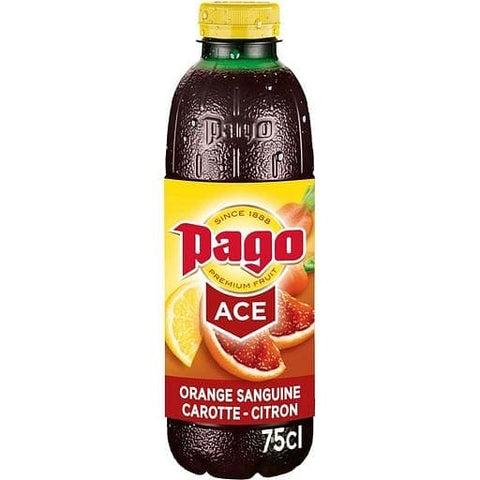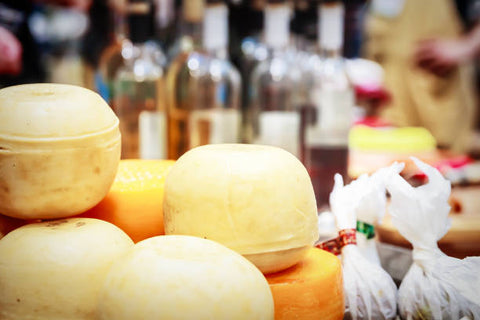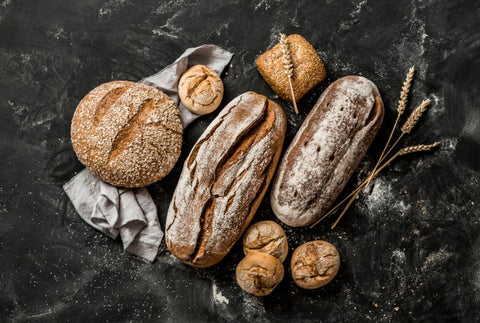The Slow Food movement is a global grassroots organization that advocates for a more sustainable and ethical food system. Originating in Italy, the movement promotes the importance of preserving traditional culinary practices, supporting local farmers and artisans, and savoring meals as a way to reconnect with food and culture. The principles of the Slow Food movement align closely with the art of French cuisine, which emphasizes quality, seasonality, and respect for ingredients. This article explores how the Slow Food movement embraces the art of French cuisine and the benefits it brings to individuals, communities, and the environment.
-
Preserving Culinary Traditions: One of the core principles of the Slow Food movement is the preservation of culinary traditions. French cuisine, renowned for its rich history and diverse regional specialties, embodies this principle. Slow Food promotes the recognition and protection of traditional French recipes, cooking techniques, and local ingredients. By valuing and preserving these culinary traditions, the Slow Food movement helps to maintain cultural identity and foster a sense of pride in French cuisine.
-
Supporting Local Farmers and Artisans: Slow Food encourages consumers to support local farmers, growers, and artisans who prioritize sustainable and responsible food production. In the context of French cuisine, this translates into sourcing ingredients from local farmers' markets, boulangeries, fromageries, and other small-scale producers. By doing so, the Slow Food movement helps to strengthen local food economies, promote biodiversity, and reduce the environmental impact associated with long-distance food transportation.
-
Seasonality and Locally Sourced Ingredients: French cuisine has long embraced the concept of seasonality, using fresh, locally sourced ingredients at their peak flavor. Slow Food advocates for this approach, emphasizing the importance of consuming foods that are in season and grown sustainably. By embracing the art of French cuisine, the Slow Food movement encourages individuals to reconnect with the rhythms of nature, supporting healthier eating habits and reducing reliance on processed and imported foods.
-
Conscious Consumption and Food Education: The Slow Food movement promotes food education and encourages individuals to become more conscious consumers. This aligns with the French culinary tradition of valuing the quality and origin of ingredients. By understanding where their food comes from, how it is produced, and the impact of their choices on the environment and local communities, individuals can make more informed decisions. Slow Food events, workshops, and educational programs provide opportunities for people to learn about the art of French cuisine, culinary techniques, and sustainable food practices.
-
Rediscovering the Pleasure of Food: Central to the Slow Food philosophy is the idea of savoring and enjoying meals as a social and cultural experience. This notion aligns with the French tradition of taking time to appreciate and savor food. By embracing the art of French cuisine, the Slow Food movement encourages individuals to slow down, engage their senses, and cultivate a deeper appreciation for the flavors, textures, and aromas of food. This mindful approach to eating promotes a healthier relationship with food and fosters a sense of connection with one's cultural heritage.
-
Promoting Food Diversity and Gastronomic Heritage: The Slow Food movement recognizes the importance of preserving food diversity and gastronomic heritage. French cuisine, with its regional specialties and unique culinary traditions, exemplifies this diversity. By supporting and celebrating the art of French cuisine, the Slow Food movement contributes to the preservation of traditional recipes, cooking methods, and culinary knowledge. This not only enriches the culinary landscape but also ensures the continuation of unique food cultures for future generations.
-
Culinary Craftsmanship and Skill: The art of French cuisine is renowned for its culinary craftsmanship and skill. French chefs are known for their meticulous attention to detail, precision in cooking techniques, and the ability to transform simple ingredients into exquisite dishes. The Slow Food movement recognizes and celebrates the artistry of French cuisine, promoting the development and preservation of culinary skills and craftsmanship.
-
Traditional Cooking Methods and Slow Cooking: French cuisine often involves slow cooking methods such as braising, stewing, and simmering. These techniques allow flavors to develop and ingredients to tenderize, resulting in rich and complex dishes. The Slow Food movement encourages individuals to embrace these traditional cooking methods, which not only enhance the taste and texture of food but also promote a more sustainable approach to cooking by utilizing less energy-intensive cooking processes.
-
Respect for Animal Welfare: The Slow Food movement emphasizes the importance of ethical and responsible animal husbandry practices. This aligns with the principles of French cuisine, which prioritize the use of high-quality, locally sourced ingredients, including meat and poultry from animals raised in humane conditions. Slow Food promotes awareness of animal welfare issues and encourages consumers to support producers who prioritize the well-being of animals.
-
Reduction of Food Waste: Reducing food waste is a key aspect of the Slow Food movement. French cuisine, with its emphasis on utilizing all parts of an ingredient and transforming leftovers into new dishes, aligns with this principle. The art of French cuisine teaches resourcefulness and creative cooking techniques that minimize food waste. By embracing the Slow Food movement, individuals can learn to appreciate and make the most of every ingredient, contributing to a more sustainable food system.
-
Revitalizing Local Food Cultures: The Slow Food movement recognizes the importance of preserving and revitalizing local food cultures. French cuisine embodies a strong regional identity, with each region having its own culinary traditions, ingredients, and dishes. By embracing the art of French cuisine, the Slow Food movement helps to promote and protect these local food cultures, ensuring their continued existence and providing economic opportunities for small-scale farmers and producers.
-
Slow Food Festivals and Events: Slow Food festivals and events provide platforms for celebrating the art of French cuisine and promoting local food traditions. These events bring together farmers, producers, chefs, and consumers, fostering a sense of community and appreciation for regional flavors and culinary heritage. Slow Food festivals often feature cooking demonstrations, tastings, and discussions that educate and inspire participants to embrace the principles of the Slow Food movement.
-
Culinary Tourism: French cuisine is a significant driver of culinary tourism, attracting food enthusiasts from around the world. The Slow Food movement encourages individuals to engage in culinary tourism by exploring local food markets, traditional eateries, and farm-to-table experiences. By immersing themselves in the art of French cuisine, travelers can deepen their understanding of regional food cultures and support local food producers and businesses.
-
Promoting Sustainable Agriculture: The Slow Food movement advocates for sustainable agricultural practices that prioritize soil health, biodiversity, and ecological balance. French cuisine, with its emphasis on local, seasonal ingredients, supports these principles. By embracing the art of French cuisine, individuals can contribute to the demand for sustainably produced food, promoting environmentally friendly farming methods and reducing the reliance on industrialized agriculture.
The Slow Food movement and the art of French cuisine share a symbiotic relationship, as both promote principles of quality, tradition, sustainability, and the celebration of food culture. By embracing the art of French cuisine within the framework of the Slow Food movement, individuals can support local farmers, preserve culinary traditions, promote sustainable practices, and develop a deeper appreciation for the cultural and sensory aspects of food. Through these efforts,




